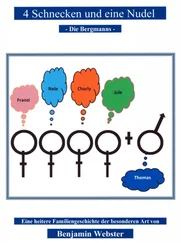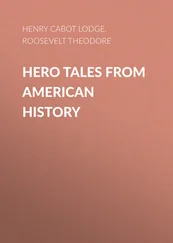Henry Cabot Lodge - Daniel Webster
Здесь есть возможность читать онлайн «Henry Cabot Lodge - Daniel Webster» — ознакомительный отрывок электронной книги совершенно бесплатно, а после прочтения отрывка купить полную версию. В некоторых случаях можно слушать аудио, скачать через торрент в формате fb2 и присутствует краткое содержание. Жанр: Биографии и Мемуары, История, foreign_edu, foreign_antique, foreign_prose, на английском языке. Описание произведения, (предисловие) а так же отзывы посетителей доступны на портале библиотеки ЛибКат.
- Название:Daniel Webster
- Автор:
- Жанр:
- Год:неизвестен
- ISBN:нет данных
- Рейтинг книги:5 / 5. Голосов: 1
-
Избранное:Добавить в избранное
- Отзывы:
-
Ваша оценка:
- 100
- 1
- 2
- 3
- 4
- 5
Daniel Webster: краткое содержание, описание и аннотация
Предлагаем к чтению аннотацию, описание, краткое содержание или предисловие (зависит от того, что написал сам автор книги «Daniel Webster»). Если вы не нашли необходимую информацию о книге — напишите в комментариях, мы постараемся отыскать её.
Daniel Webster — читать онлайн ознакомительный отрывок
Ниже представлен текст книги, разбитый по страницам. Система сохранения места последней прочитанной страницы, позволяет с удобством читать онлайн бесплатно книгу «Daniel Webster», без необходимости каждый раз заново искать на чём Вы остановились. Поставьте закладку, и сможете в любой момент перейти на страницу, на которой закончили чтение.
Интервал:
Закладка:
But in these college days, besides the vague feeling of students and professors that they had among them a very remarkable man, there is a clear indication that the qualities which afterwards raised him to fame and power were already apparent, and affected the little world about him. All his contemporaries of that time speak of his eloquence. The gift of speech, the unequalled power of statement, which were born in him, just like the musical tones of his voice, could not be repressed. There was no recurrence of the diffidence of Exeter. His native genius led him irresistibly along the inevitable path. He loved to speak, to hold the attention of a listening audience. He practised off-hand speaking, but he more commonly prepared himself by meditating on his subject and making notes, which, however, he never used. He would enter the class-room or debating society and begin in a low voice and almost sleepy manner, and would then gradually rouse himself like a lion, and pour forth his words until he had his hearers completely under his control, and glowing with enthusiasm.
We see too, at this time, the first evidence of that other great gift of bountiful nature in his commanding presence. He was then tall and thin, with high cheek bones and dark skin, but he was still impressive. The boys about him never forgot the look of his deep-set eyes, or the sound of the solemn tones of his voice, his dignity of mien, and his absorption in his subject. Above all they were conscious of something indefinable which conveyed a sense of greatness. It is not usual to dwell so much upon mere physical attributes and appearance, but we must recur to them again and again, for Mr. Webster's personal presence was one of the great elements of his success; it was the fit companion and even a part of his genius, and was the cause of his influence, and of the wonder and admiration which followed him, as much almost as anything he ever said or did.
To Mr. Webster's college career belong the first fruits of his intellect. He edited, during one year, a small weekly journal, and thus eked out his slender means. Besides his strictly editorial labors, he printed some short pieces of his own, which have vanished, and he also indulged in poetical effusions, which he was fond of sending to absent friends. His rhymes are without any especial character, neither much better nor much worse than most college verses, and they have no intrinsic value beyond showing that their author, whatever else he might be, was no poet. But in his own field something of this time, having a real importance, has come down to us. The fame of his youthful eloquence, so far beyond anything ever known in the college, was noised abroad, and in the year 1800 the citizens of Hanover, the college town, asked him to deliver the Fourth of July oration. In this production, which was thought of sufficient merit to deserve printing, Mr. Webster sketched rapidly and exultingly the course of the Revolution, threw in a little Federal politics, and eulogized the happy system of the new Constitution. Of this and his other early orations he always spoke with a good deal of contempt, as examples of bad taste, which he wished to have buried and forgotten. Accordingly his wholesale admirers and supporters who have done most of the writing about him, and who always sneezed when Mr. Webster took snuff, have echoed his opinions about these youthful productions, and beyond allowing to them the value which everything Websterian has for the ardent worshipper, have been disposed to hurry them over as of no moment. Compared to the reply to Hayne or the Plymouth oration, the Hanover speech is, of course, a poor and trivial thing. Considered, as it ought to be, by itself and in itself, it is not only of great interest as Mr. Webster's first utterance on public questions, but it is something of which he had no cause to feel ashamed. The sentiments are honest, elevated, and manly, and the political doctrine is sound. Mr. Webster was then a boy of eighteen, and he therefore took his politics from his father and his father's friends. For the same reason he was imitative in style and mode of thought. All boys of that age, whether geniuses or not, are imitative, and Mr. Webster, who was never profoundly original in thought, was no exception to the rule. He used the style of the eighteenth century, then in its decadence, and very florid, inflated, and heavy it was. Yet his work was far better and his style simpler and more direct than that which was in fashion. He indulged in a good deal of patriotic glorification. We smile at his boyish Federalism describing Napoleon as "the gasconading pilgrim of Egypt," and Columbia as "seated in the forum of nations, and the empires of the world amazed at the bright effulgence of her glory." These sentences are the acme of fine writing, very boyish and very poor; but they are not fair examples of the whole, which is much simpler and more direct than might have been expected. Moreover, the thought is the really important thing. We see plainly that the speaker belongs to the new era and the new generation of national measures and nationally-minded men. There is no colonialism about him. He is in full sympathy with the Washingtonian policy of independence in our foreign relations and of complete separation from the affairs of Europe. But the main theme and the moving spirit of this oration are most important of all. The boy Webster preached love of country, the grandeur of American nationality, fidelity to the Constitution as the bulwark of nationality, and the necessity and the nobility of the union of the States; and that was the message which the man Webster delivered to his fellow-men. The enduring work which Mr. Webster did in the world, and his meaning and influence in American history, are all summed up in the principles enunciated in that boyish speech at Hanover. The statement of the great principles was improved and developed until it towered above this first expression as Mont Blanc does above the village nestled at its foot, but the essential substance never altered in the least.
Two other college orations have been preserved. One is a eulogy on a classmate who died before finishing his course, the other is a discourse on "Opinion," delivered before the society of the "United Fraternity." There is nothing of especial moment in the thought of either, and the improvement in style over the Hanover speech, though noticeable, is not very marked. In the letters of that period, however, amid the jokes and fun, we see that Mr. Webster was already following his natural bent, and turning his attention to politics. He manifests the same spirit as in his oration, and shows occasionally an unusual maturity of judgment. His criticism of Hamilton's famous letter to Adams, to take the most striking instance, is both keen and sound.
After taking his degree in due course in 1801, Mr. Webster returned to his native village, and entered the office of a lawyer next door to his father's house, where he began the study of the law in compliance with his father's wish, but without any very strong inclination of his own. Here he read some law and more English literature, and passed a good deal of time in fishing and shooting. Before the year was out, however, he was obliged to drop his legal studies and accept the post of schoolmaster in the little town of Fryeburg, Maine.
This change was due to an important event in the Webster family which had occurred some time before. The affection existing between Daniel and his elder brother Ezekiel was peculiarly strong and deep. The younger and more fortunate son, once started in his education, and knowing the desire of his elder brother for the same advantages, longed to obtain them for him. One night in vacation, after Daniel had been two years at Dartmouth, the two brothers discussed at length the all-important question. The next day, Daniel broached the matter to his father. The judge was taken by surprise. He was laboring already under heavy pecuniary burdens caused by the expenses of Daniel's education. The farm was heavily mortgaged, and Ebenezer Webster knew that he was old before his time and not destined to many more years of life. With the perfect and self-sacrificing courage which he always showed, he did not shrink from this new demand, although Ezekiel was the prop and mainstay of the house. He did not think for a moment of himself, yet, while he gave his consent, he made it conditional on that of the mother and daughters whom he felt he was soon to leave. But Mrs. Webster had the same spirit as her husband. She was ready to sell the farm, to give up everything for the boys, provided they would promise to care in the future for her and their sisters. More utter self-abnegation and more cheerful and devoted self-sacrifice have rarely been exhibited, and it was all done with a simplicity which commands our reverence. It was more than should have been asked, and a boy less accustomed than Daniel Webster to the devotion of others, even with the incentive of brotherly love, might have shrunk from making the request. The promise of future support was easily made, but the hard pinch of immediate sacrifice had to be borne at once. The devoted family gave themselves up to the struggle to secure an education for the two boys, and for years they did battle with debt and the pressure of poverty. Ezekiel began his studies and entered college the year Daniel graduated; but the resources were running low, so low that the law had to be abandoned and money earned without delay; and hence the schoolmastership.
Читать дальшеИнтервал:
Закладка:
Похожие книги на «Daniel Webster»
Представляем Вашему вниманию похожие книги на «Daniel Webster» списком для выбора. Мы отобрали схожую по названию и смыслу литературу в надежде предоставить читателям больше вариантов отыскать новые, интересные, ещё непрочитанные произведения.
Обсуждение, отзывы о книге «Daniel Webster» и просто собственные мнения читателей. Оставьте ваши комментарии, напишите, что Вы думаете о произведении, его смысле или главных героях. Укажите что конкретно понравилось, а что нет, и почему Вы так считаете.












